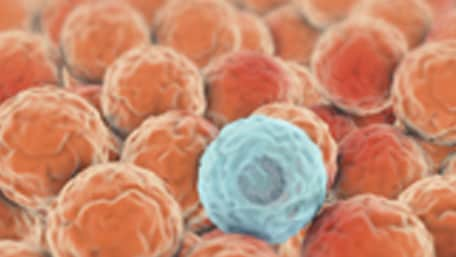
Pathogen Genomics
This week we highlight CDC public health grand rounds, Tuesday October 18 at 1pm on changes in clinical diagnostics and tracking infectious diseases.
For additional information on the role of pathogen genomics click here
Also, get the latest information on the CDC’s Advanced Molecular Detection Initiative
Changes in Clinical Diagnostics and Tracking Infectious Diseases

Tuesday, October 18, 2016, at 1 pm EDT
When it comes to tracking infectious diseases and outbreaks, determining who is infected with a particular pathogen is the first step in solving the puzzle and stopping the spread of the disease. Traditionally, culture testing has been the primary means of identifying the specific pathogen. With this method, cultures must be evaluated in a lab setting, and results can take two or three days. Culture-independent diagnostic tests (CIDTs) are a new method for diagnosing infections, and they are often used to identify foodborne illness. CIDTs work by detecting the presence of a specific genetic sequence or antigen of a germ.
These newer tests are faster, and results are available much sooner than with traditional culture tests. However, CIDTs don't identify the exact organism that caused the illness, and they don't provide some of the more detailed information that culture tests can. For example, CIDTs don't tell us what specific strain of an illness someone has, or how it may respond to antibiotics. Using only CIDTs makes it more difficult to connect individual infections to the same strain and to identify outbreaks.
This session of Public Health Grand Rounds discusses how CIDTs are changing the landscape of diagnosing infectious disease. Speakers will also discuss how the tests are evolving, and how some states are adapting to using CIDTs in their public health systems.
Presented By:
Chris Braden, MD
Deputy Director
National Center for Emerging and Zoonotic Infectious Diseases, CDC
"The Impact of Culture-independent Diagnostic Testing in Foodborne Diseases"
Deputy Director
National Center for Emerging and Zoonotic Infectious Diseases, CDC
"The Impact of Culture-independent Diagnostic Testing in Foodborne Diseases"
Alicia Cronquist, RN, MPH
Foodborne Disease Program Manager, Communicable Disease Branch
Colorado Department of Public Health and Environment
"Managing New Diagnostic Tests in Colorado"
Foodborne Disease Program Manager, Communicable Disease Branch
Colorado Department of Public Health and Environment
"Managing New Diagnostic Tests in Colorado"
Brad Spring, BSVice President, Regulatory Affairs & Compliance
BD Life Sciences (representing AdvaMedDx)
"Advancing Diagnostic Innovation and Public Health Needs"
BD Life Sciences (representing AdvaMedDx)
"Advancing Diagnostic Innovation and Public Health Needs"
John Besser, PhDDeputy Chief, Enteric Diseases Laboratory Branch
Division of Foodborne, Waterborne, and Environmental Diseases
National Center for Emerging and Zoonotic Infectious Diseases, CDC
"Next Steps: Direct-from-specimen Testing to Characterize Pathogens"
Division of Foodborne, Waterborne, and Environmental Diseases
National Center for Emerging and Zoonotic Infectious Diseases, CDC
"Next Steps: Direct-from-specimen Testing to Characterize Pathogens"
Facilitated By:
John Iskander, MD, MPH, Scientific Director, Public Health Grand Rounds
Phoebe Thorpe, MD, MPH, Deputy Scientific Director, Public Health Grand Rounds
Susan Laird, MSN, RN, Communications Director, Public Health Grand Rounds
Phoebe Thorpe, MD, MPH, Deputy Scientific Director, Public Health Grand Rounds
Susan Laird, MSN, RN, Communications Director, Public Health Grand Rounds





















.png)









No hay comentarios:
Publicar un comentario